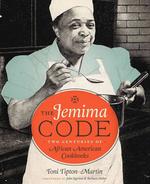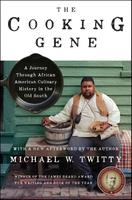.jpg) The best cookbooks are windows into other kitchens, other cultures, other countries--an invitation to step into someone else's food traditions and, in so doing, better understand the world around us and ourselves. That's why cookbooks will forever beat any Internet recipe collection in my world; I am as hungry for the stories and the photos cookbook authors prepare as I am for the dishes they promise I can make at home.
The best cookbooks are windows into other kitchens, other cultures, other countries--an invitation to step into someone else's food traditions and, in so doing, better understand the world around us and ourselves. That's why cookbooks will forever beat any Internet recipe collection in my world; I am as hungry for the stories and the photos cookbook authors prepare as I am for the dishes they promise I can make at home.
 Like so many others, I currently find myself cooking more at home than ever before; amidst the long overdue racial reckoning we've seen after the murder of George Floyd, I've also been hunting for books that explore the history of race in America. These two pulls converged when I picked up Jubilee (Clarkson Potter, $35), which promises two centuries of African American cooking "that goes far beyond soul food." Author Toni Tipton-Martin delivers exactly that, drawing on decades of historical cookbooks by Black writers and chefs that represent "a gift of... culinary freedom." Alongside Tipton-Martin's recipes for gumbo and pureed parsnips and roast leg of lamb, fried chicken, lemon tea cake and sweet potato bread are snippets of these historical cookbooks, pulling recipes and notes from Black chefs dating back to the early 19th century.
Like so many others, I currently find myself cooking more at home than ever before; amidst the long overdue racial reckoning we've seen after the murder of George Floyd, I've also been hunting for books that explore the history of race in America. These two pulls converged when I picked up Jubilee (Clarkson Potter, $35), which promises two centuries of African American cooking "that goes far beyond soul food." Author Toni Tipton-Martin delivers exactly that, drawing on decades of historical cookbooks by Black writers and chefs that represent "a gift of... culinary freedom." Alongside Tipton-Martin's recipes for gumbo and pureed parsnips and roast leg of lamb, fried chicken, lemon tea cake and sweet potato bread are snippets of these historical cookbooks, pulling recipes and notes from Black chefs dating back to the early 19th century.
 I quickly snagged a copy of Tipton-Martin's earlier work, The Jemima Code (University of Texas Press, $45), a history of these centuries of cookbooks, to continue my reading. I also picked up The Cooking Gene (Amistad, $28.99), in which culinary historian and historical interpreter Michael Twitty embarks on a journey to follow the paths of his ancestors across the Old South, "a place where people use food to tell themselves who they are, to tell others who they are, and to tell stories about where they've been." I cannot imagine a better way to continue my own historical education than via those very stories. --Kerry McHugh, blogger at Entomology of a Bookworm
I quickly snagged a copy of Tipton-Martin's earlier work, The Jemima Code (University of Texas Press, $45), a history of these centuries of cookbooks, to continue my reading. I also picked up The Cooking Gene (Amistad, $28.99), in which culinary historian and historical interpreter Michael Twitty embarks on a journey to follow the paths of his ancestors across the Old South, "a place where people use food to tell themselves who they are, to tell others who they are, and to tell stories about where they've been." I cannot imagine a better way to continue my own historical education than via those very stories. --Kerry McHugh, blogger at Entomology of a Bookworm

